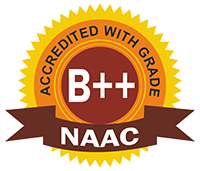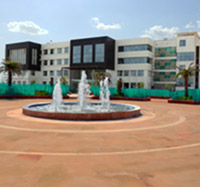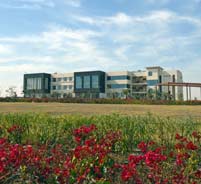Latest News:
- ABOUT RNBGU
- ADMISSIONS
- Schools
- ACADEMICS
- Strategic Plan and Deployment Documents
- Faculties and Schools
- Curriculum Design and Policy
- Syllabus
- Programme Outcomes
- Course Outcomes
- Examination and Evaluation
- Academic Calendar 2024-2025
- Board of Studies
- Academic Council
- Faculty Members
- Policies
- Committees
- ICT-Enabled Facilities
- Sanctioned Teaching Post
- MOOC Courses
- Doctoral Faculty Detail
- Indian Knowledge System (IKS)
- Gender Cell
- Teaching Learning Pedagogy
- NEP 2020 Implementation
- Teaching Outcome (Attainment)
- PROGRAMS
- Under Graduate Programs
- B.A. (Bachelor of Arts)
- B.Com. - 2025-26
- B.Com . (Hons) - 2025-26
- BBA (Marketing) - 2025-26
- BBA (Finance) - 2025-26
- BBA (Digital & Social Media Marketing) - 2025-26
- BBA (Human Resource Management) - 2025-26
- BBA (Foreign Trade) - 2025-26
- BBA (Bachelor of Business Administration) - 2025-26
- B.Tech. (Computer Science And Engineering)
- B.Tech. (CSE) Spl In Cyber Security & Forensics
- B.Tech. (CSE) Spl In Data Science & Analytics
- B.Tech. (CSE) Spl In AI & Machine Learning
- B.Sc. (Bachelor Of Science) - 2025-26
- B.Sc. (Biotechnology) - 2025-26
- B.Sc. (Hons) Agriculture
- BBA + LL.B. 2025-26
- B.A. + LL.B. 2025-26
- BCA (Bachelor of Computer Application)
- BCA-MCA Dual Degree - 2025-26
- LL.B. 2025-26
- Post Graduate Programs
- M.A. (English) - 2025-26
- M.A. (Economics) - 2025-26
- M.A. (Political Science) - 2025-26
- M.A. (History) - 2025-26
- M.A. (Public Administration) - 2025-26
- MBA - 2025-26
- MBA (Marketing) - 2025-26
- MBA (Finance) - 2025-26
- MBA (Digital Marketing & E-Business) - 2025-26
- MBA (Family Business & Entrepreneurship) - 2025-26
- M.Sc. (Biotechnology) - 2025-26
- M.Sc (Agronomy) - 2025-26
- M.Sc (Genetics & Plant Breeding) - 2025-26
- LL.M 2025-26
- MCA (Master of Computer Applications) - 2025-26
- Doctoral Programs
- Under Graduate Programs
- INFRASTRUCTURE
- Research & Incubation
- Library
- ERP Login
- NIRF
- Placements
- Campus Life
- Media
- Blog
- Career
- Contact Us
- Student Reviews
- NAAC
- Anti-Ragging
Outcome-Based education (OBE)
- RNBGU has conducted various Faculty development programs and workshops to implement and innovate the policy of Outcome-Based Education in the current scenario. Several sessions are held to sensitize faculty members to the OBE process and standards. The OBE framework of RNBGU includes vision, mission, PEOs, POs, PSOs, and COs, as well as how they are connected among themselves. The NEP committee ensures that when the curriculum is designed, the course handout covers the different domains of learning: the cognitive domain, affective domain, and psychomotor domain. Departments ensure that course outcomes are mapped to Bloom’s taxonomy. A full-fledged mechanism for the formulation of Program Outcomes (POs), Course Outcomes (COs), and Graduate attributes is in practice, and as per NEP 2020 requirements, it is updated. Further, the university maintains a top-down approach to designing the curriculum and a bottom-up approach to the evaluation process. In spirit and practice, RNBGU ensures the steps to be followed to write all instructional objective statements for a course and its needs.
- The university has organized multiple sessions and expert lectures on Outcome-Based Education. For years university has sensitized 100% of faculty members about the OBE process rigorously. The faculty members sensitize students to learning the taxonomy of OBE and the need for it. At the start of every course, POs, PSOs, and COs are explained to students. And at the beginning of every lecture, students are explained the learning outcomes of the lecture.
- RNBGU follows a credit-based, skill-oriented curriculum in all the programs in consultation with academic and industry experts, which is in alignment with the vision of the University. The appropriate and meaningful correlation exists among PEOs, POs, and COs. Various assessment tools, viz, quizzes, assignments, presentations, and other activities, are planned before the start of the semester to assess the attainment of COs. Remedial classes are conducted based on the performance of students in Internal assessments. Question papers for end-semester exams are also designed to calculate the attainment of COs. After the calculation of the attainment of COs, a report is prepared, which is evaluated by the respective department's Dean and senior faculty members. COs are then updated as per the suggestions of the departmental meeting. The IQAC takes feedback on the curriculum from students at the end of every semester. Regular feedback is taken from other stakeholders, also like; industry experts, academia, alumni, and parents. The feedback collected is thoroughly analyzed, and an action-taken report is generated. This report is placed in the Board of Studies meeting for the required modifications in the curriculum.









